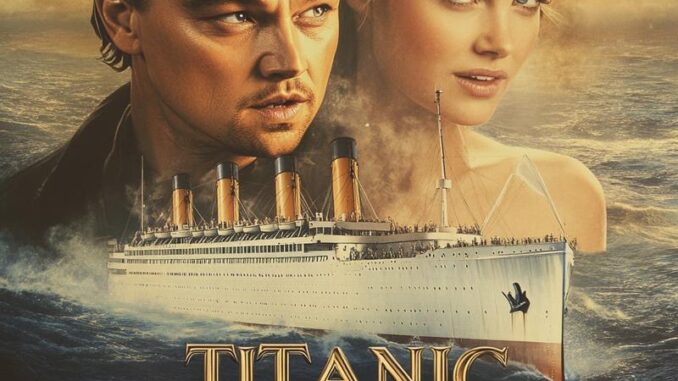
Sinking to New Lows: When Titanic Trauma Becomes Entertainment
The icy depths of the Atlantic hold not just the remains of the Titanic, but also the collective grief and trauma surrounding its tragic sinking. Over a century later, the disaster remains a potent symbol of hubris, loss, and the fragility of human life. So, when a trailer for a fictional "Titanic" sequel began circulating online, branding itself as a continuation of the iconic (and devastating) story, the reaction was swift and visceral: disgust, outrage, and accusations of exploiting a tragedy for profit. The trailer, regardless of its authenticity, has sparked a crucial conversation about the ethical boundaries of entertainment and the responsibility owed to the memory of the real people who perished.
The immediate repugnance stemmed from the sequel's premise, often involving outlandish scenarios like discovering survivors frozen in ice or a modern-day salvage operation resurrecting the ship with horrifying consequences. Such concepts, fueled by a desire to capitalize on the enduring fascination with the Titanic, inherently disrespect the gravity of the event. The original Titanic's power lay in its portrayal of human drama amidst unimaginable catastrophe. A sequel, detached from the historical context and driven by sensationalism, risks trivializing the suffering of the victims and their families. It transforms a site of immense sorrow into a playground for morbid curiosity, a move deemed "sick and selfish" by many.
The accusation of selfishness is particularly poignant. The Titanic story is not just a historical event; it's a deeply personal one for those with ancestral ties to the passengers and crew. To manipulate their collective memory for financial gain feels profoundly exploitative. Imagine the pain of watching a fictionalized narrative twist and distort the circumstances surrounding a relative's death, turning their final moments into a spectacle for entertainment. This insensitivity highlights a fundamental ethical question: how far should artistic license stretch when dealing with real-life tragedies? Where does creative freedom end and disrespectful profiteering begin?
Furthermore, the "Titanic" sequel controversy exposes a troubling trend in contemporary entertainment: the exploitation of trauma for shock value and audience engagement. From true crime documentaries that sensationalize victims' stories to horror films that gratuitously depict violence, the line between respectful storytelling and tasteless exploitation is often blurred. While exploring darker aspects of human experience can be cathartic and even educational, the intention behind the creation is crucial. Is the purpose to genuinely examine the complexities of grief, loss, and survival, or is it merely to generate cheap thrills and boost viewership? The "Titanic" sequel, fueled by fantastical scenarios and a blatant disregard for historical accuracy, leans heavily towards the latter.
Beyond the ethical considerations, the backlash against the trailer reveals a deeper societal need to protect the integrity of historical narratives. The Titanic is not just a Hollywood blockbuster; it's a cornerstone of history, a cautionary tale about technological hubris and the power of nature. By fictionalizing the aftermath with outlandish scenarios, the sequel risks distorting the public's understanding of the event and undermining the importance of historical accuracy. It reinforces a dangerous precedent where historical events are treated as mere fodder for entertainment, stripped of their context and reduced to sensationalized narratives.
In conclusion, the outrage surrounding the "Titanic" sequel trailer, regardless of its authenticity, serves as a potent reminder of the delicate balance between artistic expression and ethical responsibility. While entertainment has the power to explore complex themes and engage audiences in meaningful ways, it must do so with respect for the past, sensitivity towards the victims, and a genuine understanding of the weight of human tragedy. The icy depths of the Atlantic hold stories of unimaginable loss. They deserve to be treated with dignity and reverence, not exploited for the sake of a "sick and selfish" sequel. The sinking of the Titanic should remain a symbol of tragedy, not a source of entertainment that sinks to new lows of exploitation.